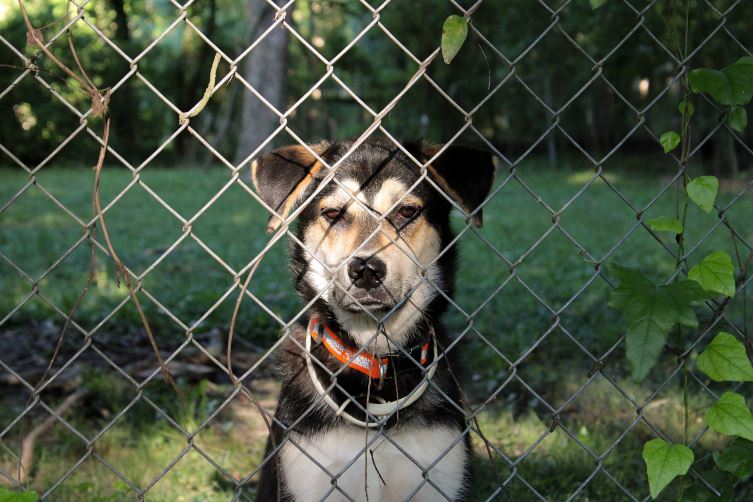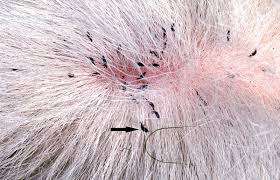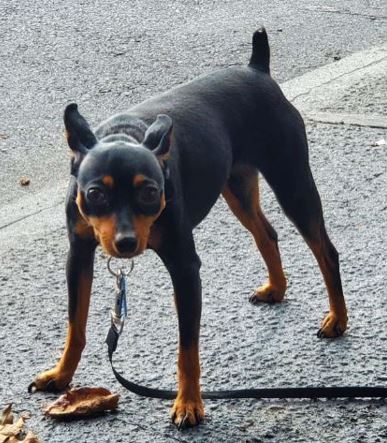How to stop dogs from digging under fence?

How to stop dogs from digging under fence?
Getting a dog to stop digging under fence will take some knowing but if you take your time and apply the following steps, it will be just as easy to stop a dog digging under fence as it is to get them started in the first place.
It's just important that you learn how to stop dogs from digging before they get too used to digging holes near your garden or where ever you have your dog kennelled. The best way to do this is for you to understand what motivates a dog when they start digging. Dogs dig because, although they like their own space and privacy, they also want companionship. Generally speaking, dogs are not a very social animal which means that if left on their own for long periods of time without human contact (or another dogs) then most likely he will start digging a hole and take up residence in the hole.
If this happens then not only have you got a problem on your hands but somebody else will probably have as well.
To keep your dog in the yard:
- Place Blocks or rocks where they usually dig
- Make your fence deeper
- Place the bottom of your fence at least 2 feet below the surface
- Chain link fencing canb be used to deter your dogs from getting too close to your fence
- Making sure you replace the dirt that he dug out back into the hole after he is done with it, or doing nothing at all if you let him dig his own holes because of the joy on their face while they do so then why not! Letting them do this is better than getting upset about it. Sometimes dogs have to get rid of some energy and putting things where they are supposed to be, might be hard for them. Running around outside and digging holes is more fun and easier than sitting in a cage alone all day long not doing anything.
- Spaying or neutering your dog will help with this problem as well as obedience training. This will also help with their behavior and improve their temperament.
Placing blocks or rocks where your dog usually digs would work as well. You can also fill in the hole with concrete or metal fence so he cannot dig a hole. For this method to work you have to make sure there are no other holes around the area where your dog digs.
A deeper fence will deter your dog from digging underneath it.
If your dog only digs to a certain depth like 1 feet, a 2 feet depth will stop them in their track.
WHY DO DOGS DIG UNDER FENCES?
Dogs dig under fences because of many different things. Below is a list of things that show why dogs will dig under fences.
- ENJOYMENT
- Out of BOREDOM
- THEY ARE TRYING TO ESCAPE
- Cooler Temperature
- Dogs love to build things
- Anxiety
- If Your Dog Is Under 6 Months Old
- Isolation
Dogs sometimes just simply like to dig a lot and it is fun for them.
This is why dogs will do a lot of things, they get bored. Dogs need lots of attention in order not to feel boredom and sometimes that means getting into something they should not be doing. They feel like digging holes and they will do it no matter what you say or try to do about it.
Yes some dogs actually are trying to escape their yards because they want to smell outside the house or play somewhere other than inside all day long. You can tell this by how big the hole is compared to how small the dog is. Some dogs are very smart and if not taken care of well enough then they might actually find a way to dig out of the yard by making a hole three or four times bigger than their own size.
The best thing you can do for a dog that wants to escape is make sure he gets enough exercise; this will wear him out and he will not want to go back in his fence after spending hours walking, you know how dogs are, they always run as fast as they can when outside. They love to run! If your dog does not get enough energy out then he may try harder at escaping just so he can feel something new or different from what he has been doing all week. Another thing you should consider is playing with him right before he goes in the house. This usually takes care of having digging problems because most dogs.
This is another reason why your dog loves to dig under the fence. He can get out of the hot sun and into a cooler area like where he is digging. When it's hot, dogs just love being in cooler places such as under trees or digging pits.
When they dig they are building their own homes underground, a place just for them! They also seem to enjoy being in an enclosed space. This makes sense because a dog would not be safe if he was outside all day without some type of protection, so why doesn't he feel the same about his home? That must mean that he feels a safety within his home or something else that makes him want to stay there longer rather than wanting more out.
Anxiety might be behind your dog's digging because of the feeling that he has to be in an enclosed area and can't get out. If you think that this might be your dogs' issue, you should try introducing more sources of toys for him to chew on or play with - it may help keep his mouth busy while also occupying his mind so that he won't feel as anxious.
If your dog is under 6 months old, then make sure that the place where he is digging isn't dangerous such as an open well. Do not yell or hit him for doing what comes naturally to him, but make sure to train him not to do it by replacing it with another activity/play time when they aren't anxious.
Isolation is a dog's worst friend. They do not like being secluded or left alone by themselves and if you can figure out what in your yard is making your dog want to dig, then remove it. Move the doghouse farther away from their digging spot or move them to another side of the yard that doesn't have access to where they are currently digging so they'll be more inclined to stay at their new location.
If The Previous Solutions Aren't Working
If you've tried everything and have no luck stopping your dog from digging under fence, then it's time to get creative with how you keep them away from that area because they are obviously very distressed about being confined in an enclosed space or not having enough room to roam around. Some ideas could be running an electric wire along the border of where they shouldn't dig so when they touch it, they'll receive a mild shock.
Will dog training help with dogs digging under fence?
Dog training is great because it gives you the tools to consistently provide positive reinforcement that will help your dog associate good behaviors with treats and praise.
During training, it's also important to keep track of what times he tends to dig so you can dog proof the fence. For example, if your dog is digging during lunch time but doesn't dig at night, you may want to put a leash on him for an hour or two during midday hours and have treats handy and encourage positive behaviors much like what you would do in training.
How to stop dogs from digging under fence with technology- Electric fences
- Electric Collars
After trying all of these methods without success, many people resort to using electric fencing which sends out a warning signal that can prevent the dog's instinctive urge to dig under the fence and reach his next door neighbor's yard - or worse yet get lost or caught by Animal Control. The trouble with electric fences is that they require constant maintenance as well as battery replacement. You'll also need clearly marked boundaries for your dog.
These collars are designed to administer a small charge when the dog digs under the fence; it is supposed to be painful enough for them not to do it again. They only work if they're fitted correctly and are charged regularly. For persistent diggers, you may need a collar that gives an even greater shock, which could be dangerous.
Do dogs outgrow their digging habits?
Just like humans outgrow certain bad habits, dogs are less likely to engage in destructive behavior when they mature. However, it may take time before your pet learns that the fence is an obstacle rather than a challenge. To speed up this process, try avoiding unnecessary training commands until everything has settled down initially.
If you notice canine behavior that suggests potential digging or escape from the area where you have set up the dog's enclosure, keep an eye on him and his activities. You might want to invest your time trying to identify what could trigger such behavior as well as how it could be avoided. Otherwise, you will have wasted both your money and time on an arrangement that does not work for either of you, or worse yet: one that fails at the wrong moment and endangers your dog's safety.
What does not work?
Some things you might try will not work. Some of these things are listed below.
- Punishing your dog
- Paying the neighbors
This never works. Your dog will either dig anyway or associate the punishment with something that is not related to digging in general. (If you don't believe us, try punishing your child for a different reason or when he was not misbehaving and see how well that works.)
Nobody likes to get paid back at the expense of someone else. The neighbor might encourage your dogs digging so that they can come running along for a share of your money. A good neighbor will help stop this without expecting anything in return.
Unorthodox methods to stop your dog from digging under fence
- Staking out the digging area
- Don't let it happen
- Ditch the dirt
Staking out the spot that your dog digs at, you can catch him in the act and confront him when he digs. This will give your dog a good scare. Dogs are very curious creatures and he will not want to get caught again after that first time which is why this method has worked for us with our dogs.
If possible don't allow your dog to dig under the fence. Confine him within an area where digging is allowed or put an invisible electric fence around the part of the yard that you do not allow digging.
Even if they like digging in dirt, change their habits by putting down wood chips or some other attractive alternative at least in one corner of the yard in order to make them go there instead.
Conclusion
If you want to stop your dog from digging under the fence, try giving them a new toy or chew bone. There are many ways to stop dogs from digging below fences and we hope that this blog post was helpful in finding one of these solutions for your pet! We also hope it has helped make you aware of how common this problem is among pets, so if you have any other questions please don’t hesitate to reach out! Thanks again for reading our blog today. Stay tuned for more great content coming soon!






